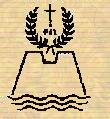HOW TO ADMONISH THE
KINDLY AND THE ENVIOUS
The kindly must be
encouraged to rejoice in the good in others. We must multiply
the good deeds of others by imitation. We sin greatly if we do
not regard with affection the good deeds of others and we do not get
any reward if we do not imitate the good we love in
others.
The kindly must be taught
not to be mere foolish spectators who are pleased with the performers
but do not wish to be like those whom they applaud. Foolish
spectators want to be pleased but decline to please
others.
The envious should see the
blindness of being disheartened by another's progress and being sad at
the happiness of others. The envious deteriorates at the
progress of others. What can be more unfortunate than such
people who are grieved by the sight of others' happiness.
By envy, you will be as
wicked as the devil for of him it is written: "But by the envy of
the devil, death came into the world." Just because he lost
heaven, he also wants man to lose heaven; in his own ruin, he stores
up more damnation for himself by ruining others.
If Cain did not envy the
pleasing sacrifice of his brother, he would not have murdered
Abel. He wholly cut off from life him whom he was grieved to see
better than himself. The envious destroys whatever little good he
has: "Envy is the rottenness of the bones."
St. Gregory the Great: Pastoral
Care, Part III, Chapter 10
(03-25-04)
